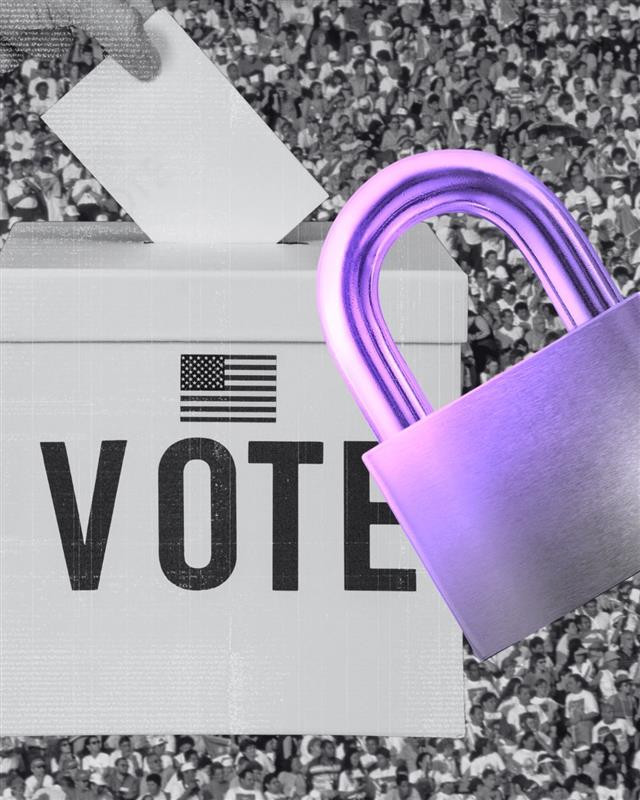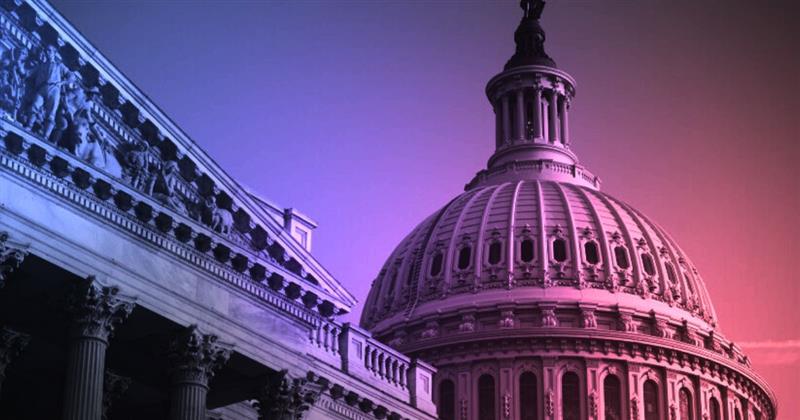Independent voters swung for President Trump in November for one main issue – the economy. Since his inauguration, independents have patiently waited for any movement towards addressing affordability.
The Big Picture
Independent voters swung for President Trump in November for one main issue – the economy – and its two tangential issues – affordability and inflation. Since his inauguration, independents have patiently waited for any movement towards addressing these key issues. So far, it’s been distraction after distraction. Now, budget reconciliation is upon us. Independent voters are eager to see how they’ll handle spending money. At first blush, it doesn’t look good.
Are you an independent? Do you care about affordability? Share your story with us and Declare Your Independence here.
Zooming In
Before adjourning for the weeklong Memorial Day recess, the House passed the reconciliation bill, dubbed the “One Big Beautiful Bill Act” (OBBBA), H.R. 1. Folks, when I say OBBBA passed, I mean it barely passed. Like, by one vote. Reps. Thomas Massie (R-KY) and Warren Davidson (R-OH) voted against the bill while Rep. Andy Harris (R-MD) voted present. Two members, Reps. David Schweikert (R-AZ) and Andrew Garbarino (R-NY), did not vote. Reportedly, Garbarino fell asleep. Schweikert got to the floor too late to cast a vote.
Massie and Davidson have come under intense criticism for their votes, with the White House going so far as to suggest that both members should face primary challenges. Massie was concerned about the impact of OBBBA on the deficit. He has made his concerns about the deficit clear since the budget resolution that started the reconciliation process. Davidson said there weren’t enough offsets to balance the deficit impact of the tax cuts. They were right to be concerned about the impact OBBBA will have on the deficit.
Although we don’t have a score yet from the Congressional Budget Office (CBO) for the version of OBBBA that passed the House, we do have an estimate on the tax provisions from the Joint Committee on Taxation (JCT). On May 13, JCT released an estimate showing that revenue provisions of OBBBA would increase the budget deficit by $3.819 trillion from FY 2025 through FY 2034. However, the proposed reductions in spending reduced the overall deficit impact of the legislation. Including the offsets, the total effect on the deficit would be $2.3 trillion over the ten years. Again, this is based on the version reported by the House Budget Committee on May 18, not the version that passed the House on May 22.
JCT released an updated estimate of the revenue provisions of OBBBA on May 28. The new estimate shows that the revenue provisions of OBBBA will increase the budget deficit by $3.939 trillion over ten years. The notable change in the revenue provisions is the reduction of savings from the state and local tax (SALT) deduction. As recently explained, the Tax Cuts and Jobs Act capped the SALT deduction at $5,000 for a married individual filing separately and $10,000 for joint filers. That change is slated to expire at the end of tax year 2025.
The version of OBBBA reported by the House Budget Committee modified the cap to $15,000 for a married individual filing separately and $30,000 for joint filers. However, the version that passed the House bumped this up to $20,000 and $40,000. The version of OBBBA reported by the House Budget Committee technically produced a savings of $916 billion over ten years. The version that passed the House, with the additional modifications to SALT to win over blue state Republicans, reduced the ten-year savings to $787 billion. That’s a reduction in savings of about $129 billion. With other changes, revenue provisions of the version of OBBBA that passed the House increased the impact on the deficit by just over $120 billion over ten years.
Just as an aside, since we’re on the subject of OBBBA and deficits. The center-right Tax Foundation released an updated estimate of the impact of OBBBA. Overall, according to the Tax Foundation, OBBBA is projected to reduce static revenue by $2.6 trillion over ten years. Accounting for changes in the economy, the revenue loss is just over $1.7 trillion.
“Okay, so what does that mean?” you ask. It means that OBBBA pays for approximately $895 billion of itself, or 34%. By the way, I’m not saying the Tax Foundation analysis is right or wrong. That being said, the 0.8% increase in long-run gross domestic product (GDP) that the Tax Foundation projects would be almost entirely wiped out by the full weight of Trump’s trade war. The Tax Foundation estimates that Trump’s tariffs, those currently in effect and those shot down by federal courts, reduce long-run GDP by 0.7%.
The deficit impact of OBBBA may also be understated. JCT released a separate cost estimate of 16 temporary provisions, including the elimination of taxes on tips, overtime, and personal auto loan interest. If these 16 provisions were extended beyond the expiration outlined in OBBBA, the deficit would rise by another $1.375 trillion through FY 2034. This brings the total deficit impact of the tax provisions to $5.315 trillion through FY 2034.

Obviously, we need the cost estimate of the provisions of OBBBA that reduce federal spending to get a better picture of the full impact on the deficit. It’s unclear when the CBO will produce that cost estimate. It may not even matter at this point because the Senate will likely substantively change many provisions, which would impact the cost estimate. I’ll try to produce a follow-up post should that happen in the next few days.
Independent Lens
If the Trump administration fails to address the key issues on which they were elected, independent voters will do what they always do – hold elected officials accountable. Like an old school mother angry at her kid, independent voters brought you into this world and they will vote you out!


.jpeg)


.jpg)